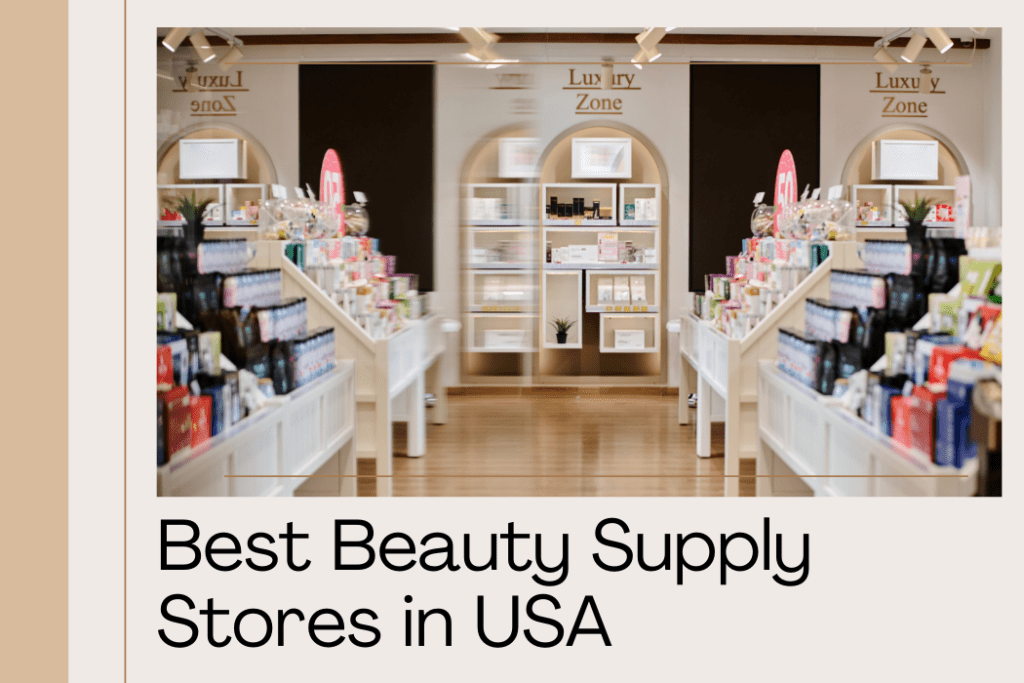If you’ve ever wondered which beauty products might contain benzene in cosmetics, the list is quite extensive. From your go-to foundation to that favorite nail polish, benzene can lurk in unexpected places.
Understanding where this harmful chemical can hide is essential for making informed choices about the products you use daily.
Stay tuned as we explore the various beauty items that could potentially harbor benzene, shedding light on a topic that impacts your health and beauty regimen more than you might realize.
Benzene in Skincare Products
Benzene is a known carcinogen that has been found in certain skincare products.
Exposure to benzene through skincare products can pose significant health risks.
When benzene is absorbed through the skin, it can enter the bloodstream and potentially cause harmful effects on various organs and tissues within the body.
The presence of benzene in skincare products is worrisome due to its potential to induce mutations in DNA, which can lead to the development of cancer over time.
It’s vital to be aware of the ingredients in skincare products and to avoid those containing benzene to minimize health risks associated with this hazardous chemical.
Always read product labels carefully and opt for benzene-free alternatives for safer skincare choices.
Benzene in Makeup Items
Skincare products aren’t the only beauty items that may contain harmful levels of benzene.
Makeup items, including foundations, eyeliners, mascaras, and lipsticks, have also been found to occasionally contain benzene.
Benzene can enter makeup items through contamination during the manufacturing process or as a byproduct of certain ingredients.
When benzene is present in makeup, it poses potential health risks, especially with prolonged exposure.
The FDA regulates cosmetics to guarantee they’re safe for consumers; however, some products may still contain benzene above safe levels.
To minimize the risk of exposure to benzene in makeup items, it’s advisable to check product labels, choose reputable brands, and stay informed about product recalls or safety alerts.
Benzene in Haircare Formulations
You’ll explore the presence of benzene in haircare products such as shampoos and hair serums.
Benzene, a known human carcinogen, has been detected in these formulations, raising concerns about potential health risks associated with long-term exposure.
Understanding the levels and sources of benzene in haircare products is essential for consumer safety and regulatory measures.
Benzene in Shampoos
Haircare formulations may inadvertently contain benzene, a known carcinogen, which is a concerning issue in the beauty industry.
Shampoos, commonly used for cleansing and treating the scalp and hair, have been found to potentially harbor benzene due to contamination during the manufacturing process.
Benzene can enter these products through various raw materials or as a byproduct of certain chemical reactions.
Exposure to benzene in shampoos raises health risks, as benzene is linked to serious conditions like leukemia and other blood-related cancers.
Rigorous testing and quality control measures are necessary to prevent benzene contamination in shampoos and guarantee consumer safety.
Manufacturers must prioritize product safety and adhere to strict regulations to mitigate the presence of benzene in haircare formulations.
Benzene in Hair Serums
The presence of benzene in hair serums, like in other haircare formulations, poses a serious health concern due to its potential carcinogenic properties.
Benzene can be unintentionally introduced during the manufacturing process or as a byproduct of other chemicals.
Hair serums, designed to improve hair texture and appearance, may contain ingredients that are susceptible to benzene contamination.
When applied to the scalp and hair, benzene in hair serums can be absorbed through the skin, potentially leading to long-term health risks.
To mitigate this risk, it’s essential for manufacturers to rigorously test their products for benzene contamination and verify compliance with safety regulations.
Consumers should be vigilant, checking product labels for benzene-free certifications and choosing safer alternatives.
Benzene in Nail Products
Benzene contamination in nail products poses significant health risks to consumers.
Benzene is a known carcinogen that has been found in various nail products, including polishes, removers, and treatments.
Exposure to benzene through these products can lead to harmful health effects, making it essential for consumers to be aware of this potential danger.
| Nail Product | Benzene Concentration (ppm) | Potential Health Risks |
|---|---|---|
| Nail Polish | 7.2 | Carcinogenic effects |
| Nail Polish Remover | 4.5 | Respiratory issues |
| Nail Treatment | 6.8 | Skin irritation |
Consumers should carefully read product labels, choose benzene-free alternatives, and guarantee proper ventilation when using nail products to minimize exposure to this hazardous chemical.
Benzene in Fragrances
Fragrances, like nail products, can also contain benzene, presenting potential health risks to consumers.
Benzene is a known carcinogen that has been linked to various health issues, including leukemia and other blood disorders.
In fragrances, benzene can be found as a byproduct of chemical reactions that occur during the manufacturing process.
When applied to the skin or inhaled, benzene in fragrances can be absorbed into the body, potentially causing harm over time.
Due to the volatile nature of benzene, it can easily evaporate from fragrances and be inhaled.
As a result, consumers should be cautious when using fragrances and opt for products that are benzene-free to minimize potential health risks associated with this harmful compound.
Benzene in Sunscreens
Sunscreen products may also contain benzene, posing potential health risks to users.
Benzene can be present in sunscreens due to impurities in certain ingredients or contamination during the manufacturing process.
Benzene is a known human carcinogen that has been linked to various health issues, including leukemia and other blood disorders.
When applied to the skin, benzene can be absorbed into the body, potentially causing harmful effects over time.
To minimize the risk of exposure to benzene in sunscreens, it’s vital to choose products from reputable brands with stringent quality control measures.
Regularly checking for product recalls and updates on benzene contamination in sunscreens is also advisable to guarantee your safety and well-being.
Benzene in Lip Products
It’s important to be aware of the presence of potentially harmful substances in lip products, such as benzene.
Benzene can be found in some lipsticks, lip glosses, and other lip care products as a contaminant due to manufacturing processes or the breakdown of other ingredients.
The presence of benzene in lip products is concerning because benzene is a known human carcinogen, meaning it has the potential to cause cancer with long-term exposure.
Regular use of lip products containing benzene may lead to unintended health risks.
To minimize exposure to benzene, it’s advisable to choose lip products from reputable brands that prioritize safety and conduct thorough testing to guarantee product quality and consumer safety.
Benzene in Body Lotions
Body lotions containing benzene pose a potential health risk due to the presence of this known human carcinogen in some formulations.
Benzene, a colorless and aromatic compound, is classified as a Group 1 carcinogen by the International Agency for Research on Cancer (IARC).
Exposure to benzene in body lotions can lead to serious health effects, including an increased risk of developing leukemia and other blood disorders.
Manufacturers may inadvertently introduce benzene into body lotions through contaminated raw materials or during the production process.
To mitigate this risk, consumers should carefully review the ingredient lists of body lotions and opt for products that don’t contain benzene.
Additionally, regulatory bodies must enforce strict guidelines to guarantee the safety of cosmetic products.
Conclusion
To sum up, different beauty products like foundations, eyeliners, fragrances, nail polishes, hair serums, shampoos, and sunscreens may contain benzene, a known carcinogen.
Consumers need to be attentive in selecting benzene-free alternatives and staying informed about product ingredients to reduce exposure to this harmful chemical.
Prioritizing health and well-being by steering clear of benzene in cosmetics is crucial for overall safety and protection against possible health hazards.

